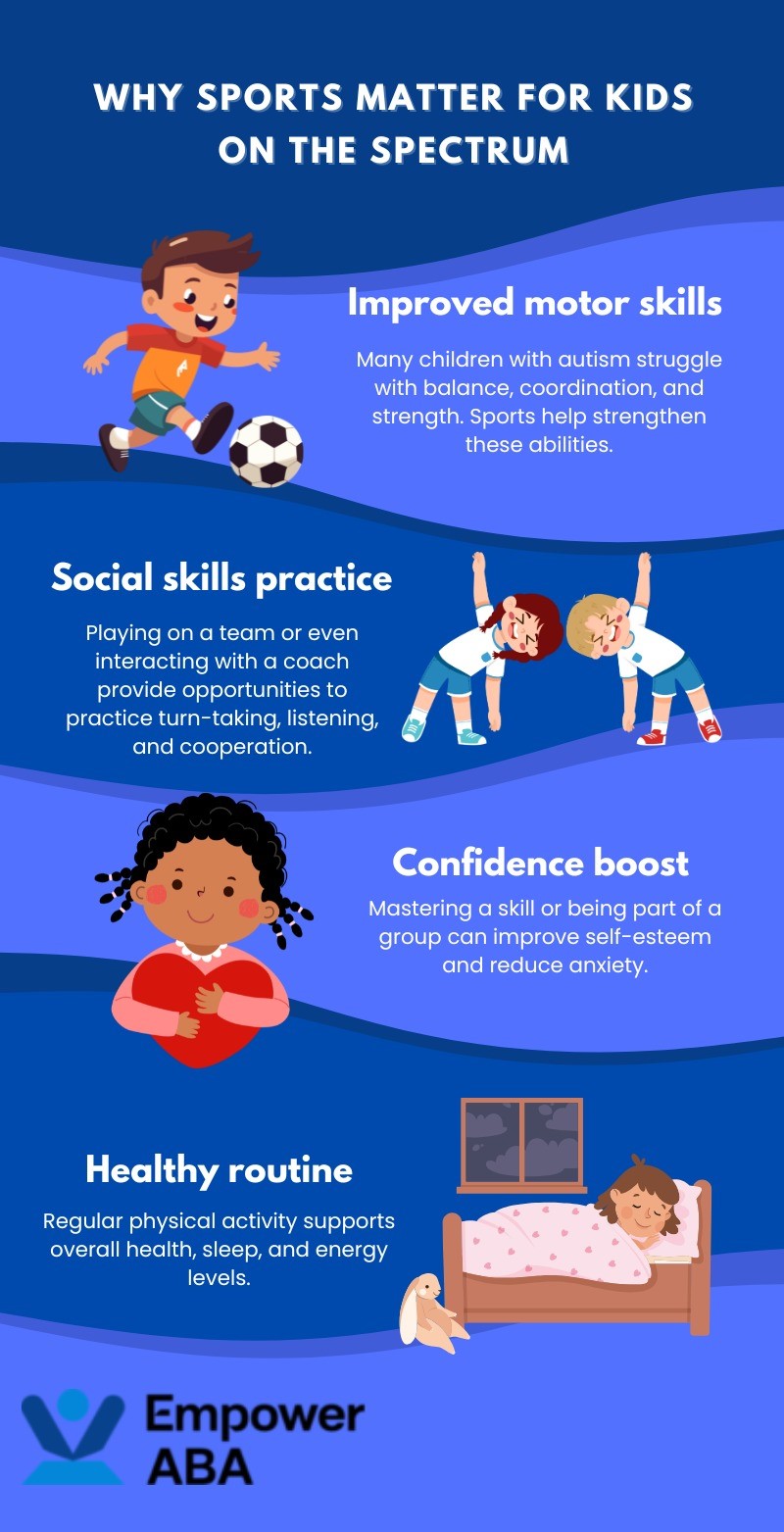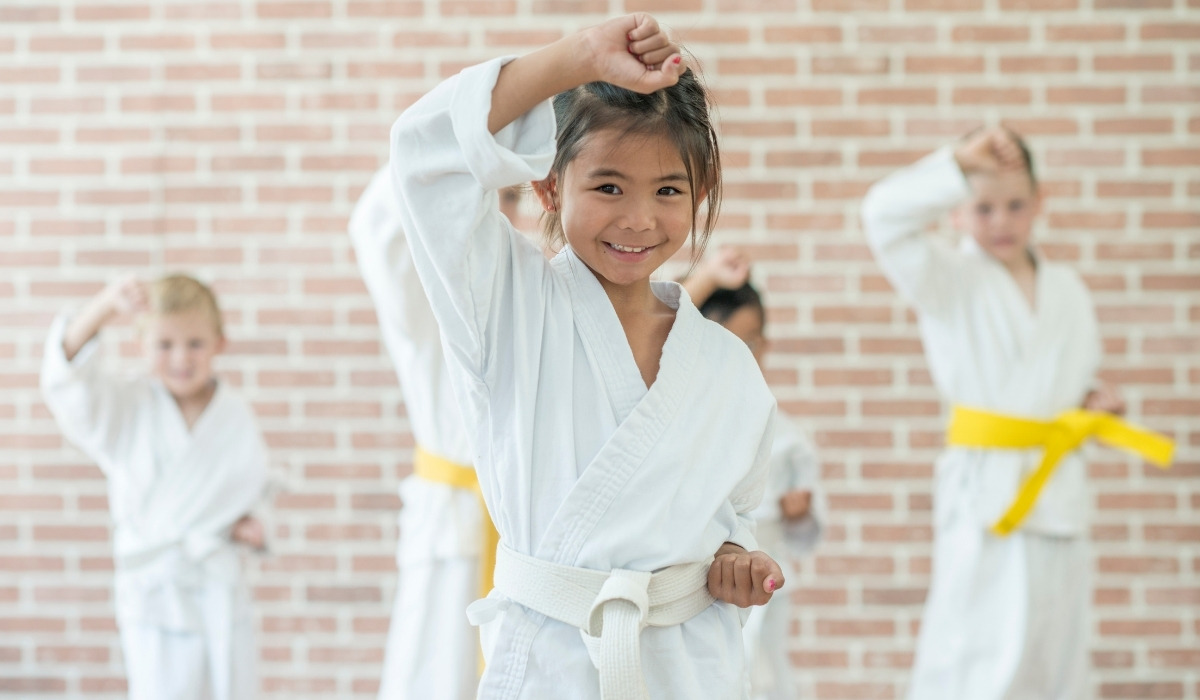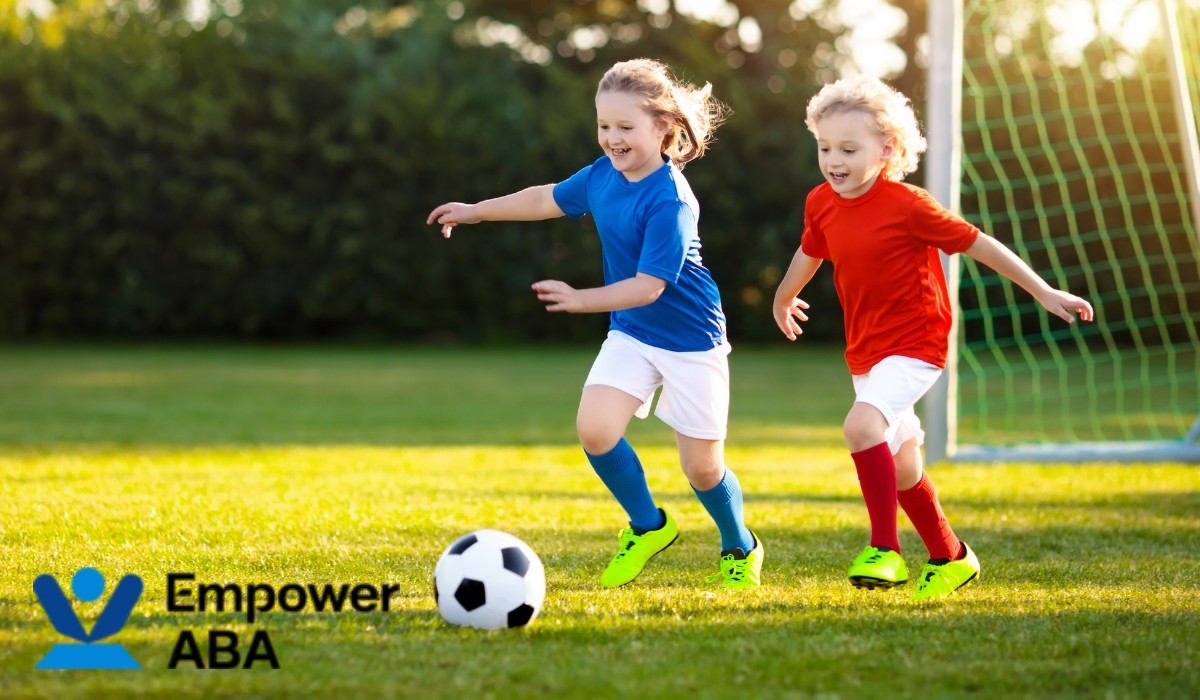Key Points:
- Many sports can help autistic children build confidence, social skills, and physical coordination.
- The best sports for autism are those that match the child’s sensory needs, interests, and personality.
- Parents can help their child succeed by choosing the right environment, supportive coaches, and realistic goals.
Finding the right sport for a child can feel overwhelming for any parent — and even more so when raising a child on the autism spectrum. Many parents wonder what sports are good for autism and how to choose one that supports their child’s unique needs.
The good news is that several sports and activities can offer autistic kids meaningful benefits, from building confidence to improving social and motor skills. By understanding what sports are good for autism and what to consider, parents can set their kids up for a positive experience.
Are Sports Good for Autistic Kids?
Yes, sports can be very beneficial for autistic kids when matched to their individual needs and strengths. Sports provide more than just physical exercise. They help children with autism spectrum disorder (ASD) practice social interaction, follow rules, develop coordination, and feel part of a team or community.
Choosing the right activity — one that accommodates sensory sensitivities and respects their pace — is key. Parents often ask, “What sports are good for autism?” and the answer isn’t one-size-fits-all, but understanding a few principles can make the decision clearer.
Why Sports Matter for Kids on the Spectrum
Participation in sports can help autistic kids in many areas of development. Children with autism often face challenges with motor skills, communication, and emotional regulation — and the right sport can support growth in all these areas.
Some benefits of sports for autistic kids include:

What Sports are Good for Autism?
When asking what sports are good for autism, it’s helpful to think about the child’s sensory needs, personality, and comfort level with social interaction. Some children thrive in quiet, individual sports while others enjoy team dynamics.
Here are some great options to consider:
Individual Sports That Work Well
For many kids with autism, individual sports feel less overwhelming than noisy, fast-paced team games. These allow them to focus at their own pace:
- Swimming: Water provides a calming sensory experience and builds strength and coordination.
- Martial arts: Activities like karate or judo teach focus, discipline, and respect, often in a structured, predictable environment.
- Track and field: Running, jumping, and throwing can be rewarding and help burn energy without too much sensory overload.
- Gymnastics: Improves balance, flexibility, and body awareness.
Team Sports That Can Be a Good Fit
Some autistic children enjoy being part of a team, especially if the team is supportive and coaches are understanding:
- Soccer (with adaptive programs): Great for learning teamwork and improving fitness.
- Basketball: Works on hand-eye coordination, quick thinking, and communication.
- Baseball or softball: With a slower pace and clear roles, these sports can feel manageable and fun.
Other Activities to Consider
In addition to traditional sports, some less conventional activities can also meet the needs of autistic children:
- Horseback riding (therapeutic riding): Builds trust, balance, and connection with animals.
- Yoga: Calms the mind and improves flexibility, breathing, and body awareness.
- Bowling: Offers a predictable, low-pressure environment with clear goals.
Tips for Choosing the Right Sport
Every child is different, so it’s important to tailor the sport to the child’s interests and needs. Here are some practical steps parents can take:
Understand Your Child’s Preferences
Pay attention to what excites your child and what causes stress. If your child dislikes loud noises, avoid sports in echoing gyms or crowded fields. If they love water, swimming might be perfect.
Look for Inclusive or Adaptive Programs
Many communities offer sports programs specifically designed for kids with special needs. Coaches are trained to be patient and adapt activities to different abilities.
Start Small
It’s okay to start with just a few minutes of participation and gradually build up. Watch practices or try a short trial period before committing.
Communicate with Coaches
Be upfront about your child’s needs and what strategies work best. A good coach can make a huge difference in creating a positive experience.
Helping Your Child Succeed in Sports
To make sure your child gets the most out of their sports experience, here are a few ways you can support them:
- Practice at home: Familiarity with the basic rules and skills can reduce anxiety during actual games or practices.
- Stay patient and positive: Focus on effort and improvement, not perfection or winning.
- Provide sensory supports: Earplugs, sunglasses, or breaks can help your child cope with overwhelming environments.
- Celebrate small victories: Every step forward is worth recognizing.
Sometimes, even after trying different options, sports might feel like more stress than benefit. That’s okay too. Activities like art, music, or gardening can offer similar social and motor benefits without the competitive atmosphere. The most important thing is finding something your child enjoys and feels good about.
Help Your Child Thrive With Empower ABA
While sports help with physical and social skills, many autistic children also benefit from structured behavioral support. ABA (Applied Behavior Analysis) therapy focuses on teaching communication, daily living, and coping skills — which can also improve their experience in sports and other activities.
Empower ABA understands the unique needs of autistic children and their families. If you’re looking for professional support beyond sports, our compassionate team offers personalized ABA therapy in Virginia, New York, and New Jersey.
ABA therapy can help children develop the communication, focus, and social skills that enhance not only their daily life but also their participation in sports and other enriching activities. Reach out to us today and discover how our services can help your child thrive.


